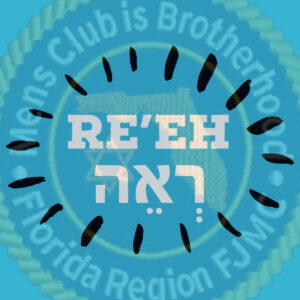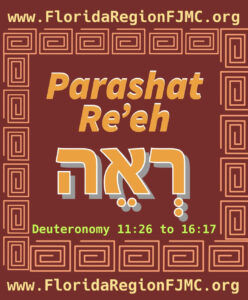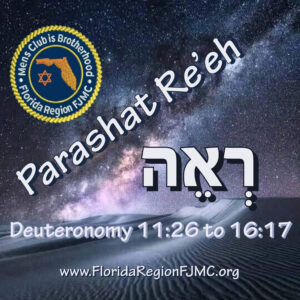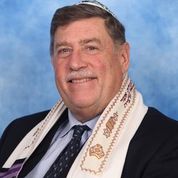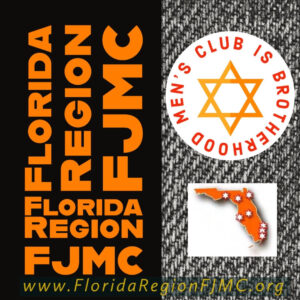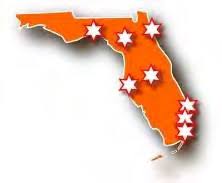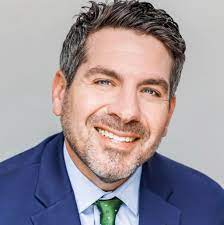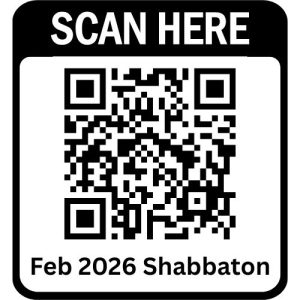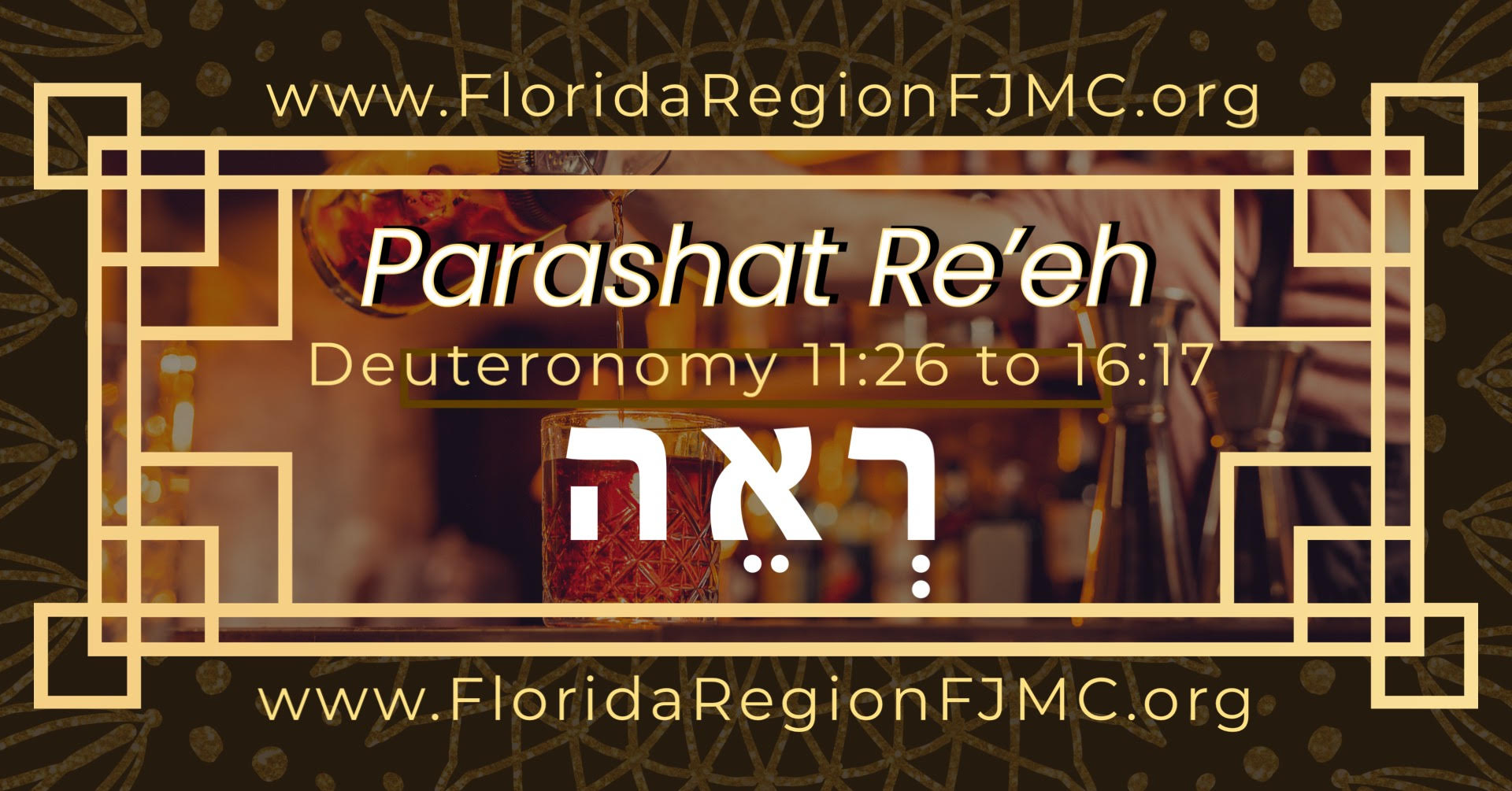
When you Choose Shabbat, you choose to learn that every Shabbat is different and special. This week I learned about Parashat Re’eh (רְאֵה), the 47th weekly Torah portion in the annual cycle of Torah readings.
According to Wikipedia, Re’eh (רְאֵה), Deuteronomy 11:26 through 16:17, contains 7,442 Hebrew letters, 1,932 words, 126 verses and makes up 258 lines of the Torah scroll, making it the longest Torah portion within the Book of Deuteronomy.
Re’eh is packed with source information straight from the mouth of Moses including the laws of kashrut and tithes, as well as instructions for the Sabbatical year and the Three Pilgrimage Festivals; Passover, Shavuot and Sukkot; collectively known as Shalosh Regalim (שלוש רגלים). Moses also instructs the Israelites in the importance of a single, centralized place of worship.
Because of its significance, portions of Parashat Re’eh are reread several times during the year. Deuteronomy 14:22 through16:17 is chanted on Shemini Atzeret. It is also the initial Torah reading on the eighth day of Passover and the second day of Shavuot when either holiday falls on Shabbat. In contrast, if the eighth day of Passover or the second day of Shavuot falls on a weekday, then the initial Torah reading is Deuteronomy 15:19 through 16:17.
Rabbi Michael D Klein of Temple Torat Emet offers his insights on this week’s Torah reading, Re’eh:
“In the movie, Shawshank Redemption, actor Tim Robbins states, while pondering his fate, “It comes down to this, you can get busy living or get busy dying”. This is a fitting description of the main framework of Sedra Reeh. Life is about choices. Oft times, we are faced with circumstances which leave us no choice except how to respond. However, the majority of our lives, we are given the freedom to choose path A or path B.
As Jews, we are presented in this Torah portion with several key choices. Do we worship together as a people or do we ignore the call to join our fellow Jews in communally thanking G-d for all the daily blessings we receive? Do we follow the dietary laws which elevate the act of eating to a higher level of holiness? Do we set aside special devotional and spiritual times each day, each week and throughout the year or do we ignore them as if they did not exist? These are questions which each person must answer for themselves.
Holiness is not a birthright; it is based on our choices! We can choose to get busy living a Jewish life by making correct choices which elevate ourselves and our families to new heights or we can choose to live a life without hope or meaning. Torah portion Reeh gives us hope that we can rise above the mundane to make every moment of our lives more special and more meaningful. May we have the courage to make good choices.
Questions to Consider:
- Why are Mt. Gerizim and Mt. Ebal chosen as places for blessing or curse?
- What must we do first, before we celebrate each holiday?
- What is the most important rule that is the basis for all Kashrut?
- What is the difference between Tov and doing Yashar?”
Rabbi Michael D. Klein attended Yeshiva College of South Florida and served as Torah Reader, Hebrew teacher, Chazzan and spiritual leader of various synagogues throughout South Florida. In January 2015 he became Ritual Director, Bnai/Bnot Mitzvah instructor and 7th grade Hebrew instructor for Temple Torat Emet of Boynton Beach. In October 2019 he was accepted into an accelerated track and received his shicha from Yeshiva Adath Wolkowisk and has been the Rabbinic leadership of Temple Torat Emet since August 2020. In September of 2022 he was appointed Rabbinic and Spiritual Advisor of the Florida Region of FJMC.
Choose Shabbat; choose to celebrate, to light candles, sing songs and learn a little Torah.
This moment of Jewish Learning is brought to you by the Florida Region of the Federation of Jewish Men’s Clubs (FJMC). We are part of a confederation of over 200 Jewish Men’s Clubs and Brotherhoods representing over 20,000 members across the United States, Canada, Latin America, and beyond. Learn more about how your Jewish Men’s Club or Brotherhood can affiliate with the FJMC at: https://www.fjmc.org/content/affiliating-fjmc.
The Florida Region of FJMC serves the needs of affiliated Men’s Clubs and Brotherhoods throughout the State of Florida. Get to know more about the FJMC Florida Region and our growing network of Jewish Men’s Clubs and Brotherhoods at www.floridaregionfjmc.org and please visit and LIKE our Florida Region FJMC Facebook Group at www.facebook.com/FloridaRegionFJMC.
